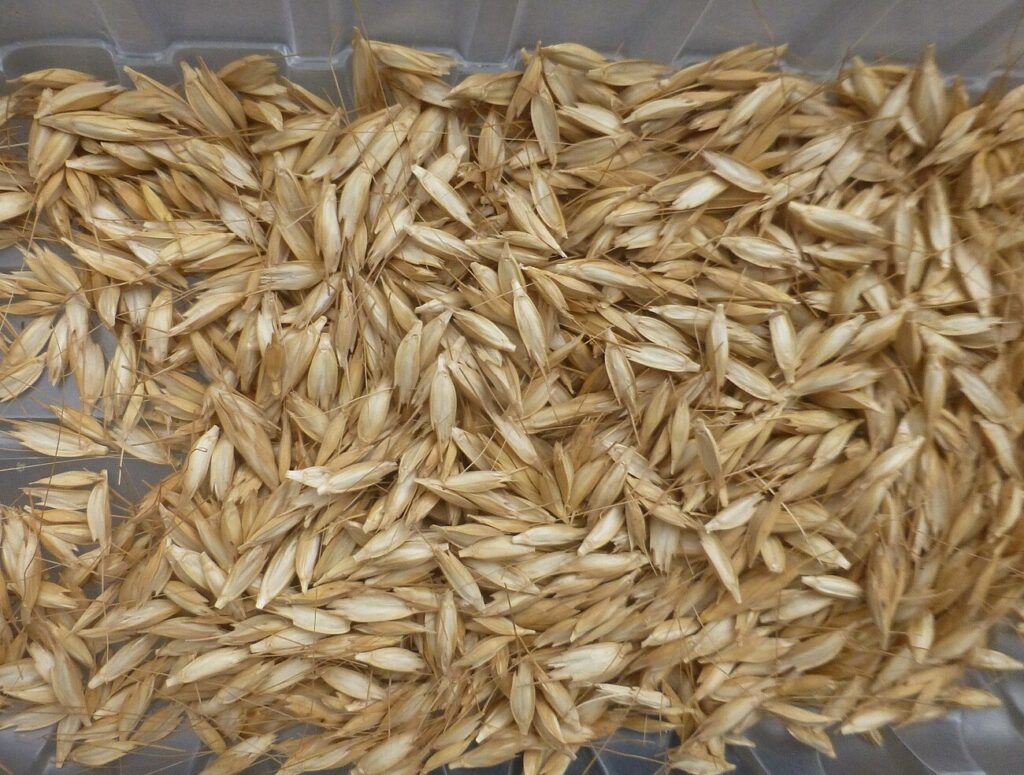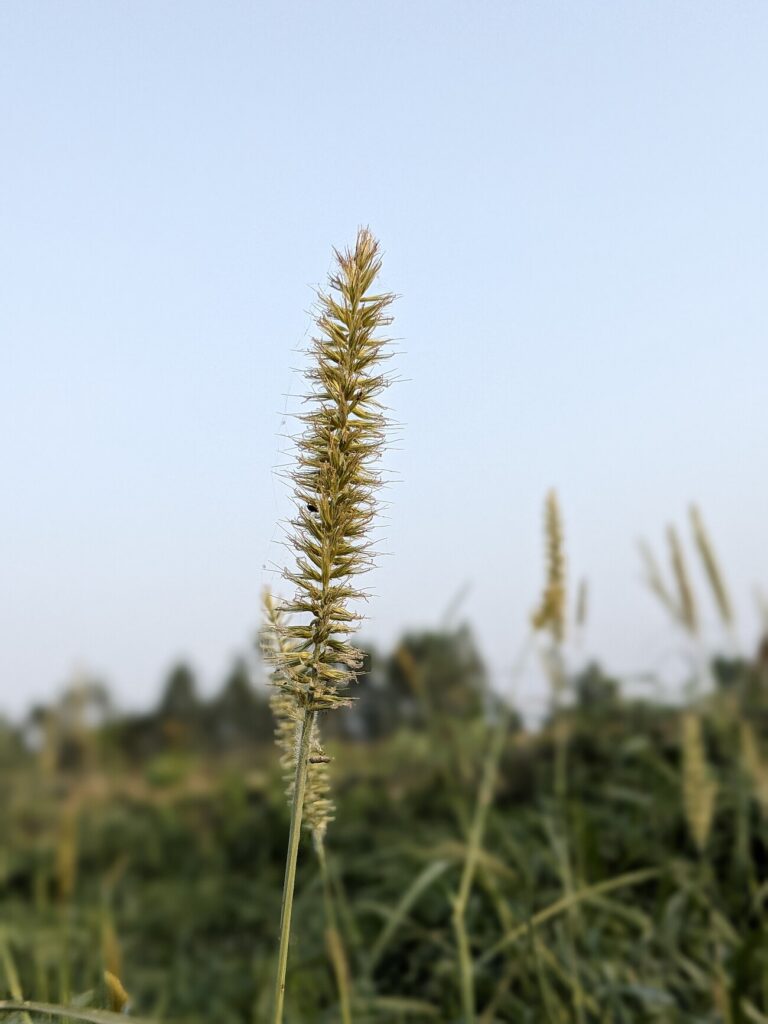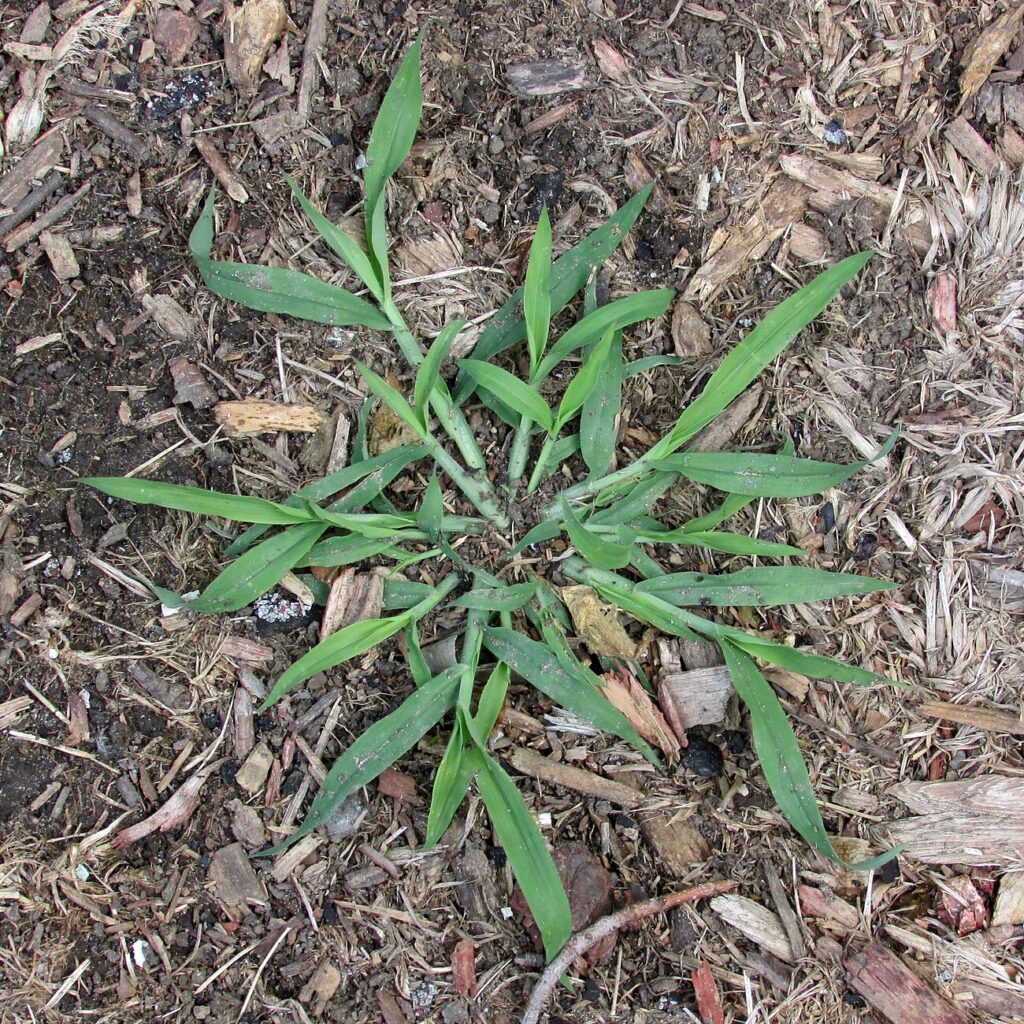Exploring Wild Einkorn, Einkorn Wheat
Scientifically recognized as Triticum monococcum and classified under Family: Poaceae, stands out as a distinctive Annual grass known for its unique characteristics. While it may also be found under other Synonyms, Triticum monococcum subsp. monococcum.withN/A form. You can use our free plant care app PlantPlants to identify Wild Einkorn, Einkorn Wheat.
Temperature
-12 C (10 F) to 35 C (95 F)
Watering
Moderate; drought-tolerant once established
Fertilizing
Organic fertilizers, such as compost
Sunlight
Full sun to partial shade
Toxicity
Generally non-toxic



Appearance and Growth Of Wild Einkorn, Einkorn Wheat
At maturity, this species reaches approximately 60-100 cm (2-3 ft), presenting Narrow, green, linear leaves with a smooth texture along with Terminal flower spikes with small, yellowish-green flowers, followed by Small, hard grains; husked seeds encased in a glume. These features are supported by a reliable Fibrous root system, ensuring stability and sustained growth.
Wild Einkorn, Einkorn Wheat Origin and Habitat
Native to Middle East, particularly in regions of ancient agriculture, Wild Einkorn, Einkorn Wheat thrives in Dry, nutrient-poor soils in temperate climates at elevations around From sea level to about 3000 meters (9842 ft). Best suited for USDA Hardiness Zone Zones 5-9. Whether grown indoor, in a curated garden or a more natural setting, its ecological requirements help maintain its vigor over time.



How to take Care of Wild Einkorn, Einkorn Wheat
Light, Soil and Watering Wild Einkorn, Einkorn Wheat.
You can use our free plant identify app PlantPlants to chose the best spot for Wild Einkorn, Einkorn Wheat, This plant prefers Full sun to partial shade and flourishes in Well-drained loamy or sandy soils with a soil pH of about 6.0 7.5.
Wild Einkorn, Einkorn Wheat needs watering,Moderate; drought-tolerant once established, guided by PlantPlants app, You can get plants daily watering schedule. to maintain Prefers dry to moderately moist conditions, ensure steady hydration. Applying water through Direct irrigation or rainwater supports even distribution and helps prevent overwatering or dryness.
Temperature and Humidity
Wild Einkorn, Einkorn Wheat performs best within 15 C to 25 C (59 F to 77 F). Its ideal growth occurs at around 20 C (68 F), though it tolerates ranges from -12 C (10 F) to 35 C (95 F). Additionally, maintaining Low to moderate humidity levels encourages healthy foliage and overall plant vigor.
Fertilization & Soil Health
Feeding with Organic fertilizers, such as compost at the recommended Seasonal Application Frequency on PlantPlants App keeps nutrients balanced. Incorporating Addition of organic matter to improve soil fertility enhances soil structure and fertility, while staying alert to Stunted growth and yellowing of leaves helps you adjust care as needed to maintain optimal plant health.
Routine and Maintenance
Regular attention ensures this plant’s beauty and longevity. Not typically pruned for N/A tidies its appearance, while Not usually required; establishes well in the field may be necessary as it grows, requiring a N/A increase and a fresh Well-draining sandy loam. for Staking or Support. No support needed.
Seasonal Changes and Propagation of Wild Einkorn, Einkorn Wheat
During Dormant in winter, growth may slow and some Leaves may turn yellow before senescence can occur. For those looking to propagate, consider Seed propagation and provide Requires moist soil at 15-25 C (59-77 F) when starting from seed. If using cuttings, follow Not commonly propagated by cuttings to ensure successful rooting and healthy new plants.
Pests, Diseases and Prevention
our free plant identify and care app PlantPlants can help you diagnosisWild Einkorn, Einkorn Wheat problems.Though generally robust, keep watch for Aphids, wheat weevils and remain vigilant against Rust diseases, Fusarium head blight. Implementing Crop rotation and resistant varieties and applying Pesticides and fungicides as necessary when issues arise will help sustain the plant thriving.
Companions and Uses of Wild Einkorn, Einkorn Wheat
This plant pairs nicely with Legumes like clover; helps fix nitrogen in soil and shows Can suppress certain weeds, making it a flexible choice for various Ornamental grass in naturalistic landscapes.
Edible and Cultural Aspects
the Edible Parts: Grains. Toxicty of Wild Einkorn, Einkorn Wheat, Generally non-toxic. learning about its Harvest in late summer when grains are hard, Ground into flour for baked goods; used in porridge, and High in protein and gluten; contains essential amino acids can be intriguing for culinary explorers. Some traditions highlight its Historically used in various cultures as a staple food or note its One of the first cultivated grains; significant in ancient agriculture.
Conservation and Status
With an Not evaluated, proper Preservation of wild populations; cultivation in agricultural biodiversity projects
Frequently Asked Questions
1. What is wild einkorn?
Wild einkorn is one of the oldest cultivated forms of wheat and is known for its nutritional value.
2. Is wild einkorn gluten-free?
No, einkorn does contain gluten but is often tolerated better by some individuals with gluten sensitivities.
3. How do I grow wild einkorn?
Plant seeds in well-drained soil in an area with full sun and moderate moisture.
4. When should I harvest einkorn?
Harvest einkorn when the grains are hard, typically in late summer.
5. What are the nutritional benefits of einkorn?
Einkorn is high in protein, essential amino acids, and minerals, with a lower gluten content compared to modern wheat.
6. How can I use einkorn in cooking?
It can be ground into flour for bread, pasta, or used in cereals and porridge.
7. Are there any pests that affect einkorn?
Yes, common pests include aphids and wheat weevils.
8. What diseases affect einkorn?
It can be affected by rust diseases and Fusarium head blight.
9. How should I fertilize einkorn?
Use organic fertilizers sparingly, applying 1-2 times per year.
10. Where can I buy einkorn seeds?
Einkorn seeds are available at specialty seed companies, organic gardening stores, or online suppliers.


